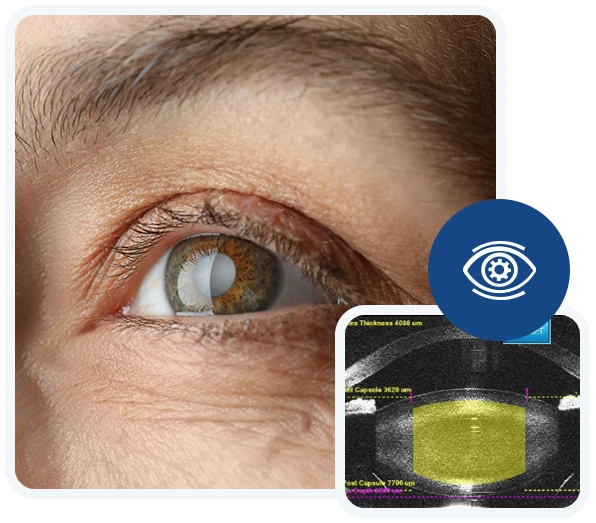Cataract Specialist
Eye Associates of Monmouth
John Ghobrial, MD
Expert Cataract Surgery

Cataract Q & A
When the clear lens in your eye becomes cloudy from protein buildup, it’s called a cataract. When a cataract forms on your lens, it leads to distorted vision. Cataracts can form in different areas of your lens, including:
- At the back of your lens (subcapsular cataracts)
- In the center of your lens (nuclear cataracts)
- Around the outside of your lens (cortical cataracts)
Cataracts usually develop gradually over time, and typically once you’re over the age of 40, so you may not realize you have one until it interferes with your vision.
Although the medical community doesn’t completely understand why some people get cataracts as they get older while others don’t, there are several contributing factors that may increase your risk, such as:
- Genetics and family history
- Smoking
- Exposure to sunlight and ultraviolet radiation
- Past eye injuries or surgeries
- High blood pressure
- Diabetes
- Prolonged use of some medications
- Hormone replacement therapies
- Nearsightedness (myopia)
As you age, your lenses become less flexible and less transparent. If you have any of the risk factors above, the tissue in the lenses breaks down and slowly begins to clump together. This clouds areas of the lens and blocks the light that passes through it. As a result, your lens is no longer able to clearly define the details of an image, and objects may appear fuzzy.
- Sensitivity to light
- Trouble seeing clearly at night
- Halos around lights
- Blurred or double vision
- Clouded vision
- Faded or yellowing colors
- Distorted images or ghost images
During cataract surgery, which is typically a painless procedure with a quick recovery and vision improvement, Dr. Ghobrial numbs your eye and makes a small incision in your cornea to remove the proteins that are clouding your natural lens. Once he removes the protein buildup, he inserts a clear intraocular lens (IOL). You won’t be able to feel this artificial lens, but as you recover, typically within 24 hours after cataract surgery, you’ll be able to see more clearly.
Dr. Ghobrial uses IOLs including AcrySof® IQ ReSTOR® multifocal lenses and AcrySof Toric lenses. These allow you to see clearly at all distances, so you may not even have to wear reading glasses. Dr. Ghobrial is also certified to provide femtosecond laser-assisted surgery (FLACS), which is the latest innovation in cataract surgery.
Today’s advanced technology has made cataract surgery one of the most successful types of eye surgery, allowing many people to enjoy clearer vision than they’ve had in years. In fact, many of Dr. Ghobrial’s patients who were once considered to be legally blind can read and drive a car without glasses after cataract surgery.
Call or book an appointment online to learn more.

